Evans, Gray top GLAA candidate ratings ahead of June 14 primary
Biennial candidate ratings gauge politicians' responsiveness to LGBT community's policy concerns
By John Riley on May 11, 2016 @JRileyMW

Just as they did when they sparred in 2014’s mayoral Democratic primary, Councilmember Jack Evans (D-Ward 2) and former Mayor and Councilmember Vincent Gray (D-Ward 7) again topped the list of office-seekers earning high praise and ratings in the Gay and Lesbian Activists Alliance’s (GLAA) 2016 candidate questionnaire. Luckily, though, this year they are not opponents, but allies seeking separate seats on the D.C. Council.
The biennial survey, issued to candidates seeking elected positions within the District, is used to gauge candidates’ activism and responsiveness to the major concerns of the LGBT community. Candidates are rated on a scale of -10 to +10 based on their answers to GLAA’s questionnaire, their record on LGBT issues and any advocacy on behalf of the community. All questions are based on issues broached in GLAA’s annual policy brief, “Building on Victory,” which is made available to all candidates in advance.
So far, GLAA has only rated those candidates running in the primaries for the District’s three officially recognized political parties: Democrats, Republicans, and Statehood-Green members, all of whom will select nominees in the June 14 citywide primary election. The organization is expected to release ratings for independent candidates — including incumbent Councilmember David Grosso (I-At-Large), who is running for re-election — ahead of the November general election.
Both Evans, running unopposed for re-election to his Georgetown, Dupont and Downtown-anchored district, and Gray, who is running for the Southeast D.C.-anchored seat he once held before becoming Council Chairman in 2007, earned a top score of +10 on GLAA’s rating scale, which ranges from -10 to +10. Both men have long and substantial records that indicate a commitment to LGBT rights from their years on the Council, and Gray, during his four-year tenure as mayor.
Other strong scorers on GLAA’s candidate questionnaire were Robert White, who is challenging incumbent Vincent Orange (D-At-Large) in the Democratic primary, who earned a +8.5, as well as Councilmember LaRuby May (D-Ward 8) and G. Lee Aikin, running in for the Statehood-Green nomination for one of two at-large seats, who both earned +7.5.
For the two at-large seats, challenger David Garber earned a +6.5 for agreeing with GLAA’s positions on all issues and providing substantive answers, but lost points because of his limited record on LGBT issues. Meanwhile, incumbent Orange earned a +4, which marks a significant improvement over his 2012 GLAA rating of +0.5. GLAA noted in its writeup of Orange that he has generally been an ally to the LGBT community, but did, during his 2006 campaign for mayor, call some of his primary rivals “morally unfit” for office because of their support of marriage equality. Republican Carolina Celnik, a Navy Yard resident and law firm employee who works on regulatory issues, did not return a questionnaire and was given a zero based on her lack of a record on LGBT issues.
In Ward 4, Democratic challenger Leon Andrews earned a +6, besting incumbent Democratic Councilmember Brandon Todd, who earned a +5, and Calvin Gurley, who earned a +3.5. Challenger Ron Austin did not return a questionnaire and was given a zero rating.
In Ward 7, Gray faces off against incumbent Democratic Councilmember Yvette Alexander, the only remaining councilmember who voted against marriage equality in 2009. Alexander, who earned a +5.5, showed improvement over her 2012 rating of -3.5 and has generally been an ally to the LGBT community on the Council, sponsoring and pushing through her committee legislation allowing transgender people to amend their birth certificates, require health professionals receive training to be competent in dealing with LGBT-specific health issues, and banning the practice of conversion therapy on minors. Democrats Delmar Chesley and Grant Thompson did not submit responses to GLAA’s questionnaire.
In Ward 8, May’s challengers Trayon White and Aaron Holmes earned ratings of +4 and +2, respectively, while Maurice Dickens and Bonita Goode did not submit responses to GLAA’s questionnaire.
More from Metro Weekly:
Christian School Recruits Baseball Player, Then Says No Over Gay Dads
Valley Christian told Caleb Degala-Burnett’s parents that their family didn’t align with the school’s “Christian values.”
By John Riley on June 29, 2025 @JRileyMW
A Christian high school in California went out of its way to recruit a talented baseball player, and then rejected him because he has two gay dads.
Caleb Degala-Burnett, a recently graduated eighth grader from Union City, was invited to a high-level scouting event for the Class of 2029–2030, where 20 top prospects participated in a pro-style workout and game. According to statistical analysis, he had the fastest outfield throw in his class. The website Perfect Game rates him a "college prospect" and a potential pro draft pick "with development."
Gina Ortiz Jones Elected as San Antonio’s First LGBTQ Mayor
The Air Force veteran also makes history as first Asian-American woman and first female war veteran to lead a major Texas city.
By John Riley on June 9, 2025 @JRileyMW
Gina Ortiz Jones was elected mayor of San Antonio in a runoff election on June 7.
The victory was historic, as Jones is not only San Antonio's first out LGBTQ mayor but the first Asian-American female mayor of a major city in Texas and the first female mayor in Texas to have served in a war.
(She's a former Air Force officer and Iraq War veteran who previously served as Under Secretary of the Air Force during the Biden administration.)
Jones is also the first mayor since 2005 to not have previously served on the city council and will serve a four-year term.
Wisconsin Inmate Gets Life for Killing Black, Gay Cellmate
Jackson Vogel strangled 19-year-old Micah Laureano inside Green Bay Correctional Institution in what prosecutors called a hate crime.
By John Riley on July 2, 2025 @JRileyMW
Jackson Vogel has been sentenced to life without parole for strangling his cellmate -- 19-year-old Micah Laureano, a Black gay man -- inside Green Bay Correctional Institution in what prosecutors described as a racially and homophobically motivated killing.
The Wisconsin inmate was found guilty of first-degree intentional homicide by a jury last month.
Before sentencing, Vogel -- who was already serving a 20-year term for attempting to kill his mother in 2016, when he was just 16 -- told Brown County Circuit Judge Donald Zuidmulder he was "sorry" for his actions, although he did not appear to show any signs of regret.
Support Metro Weekly’s Journalism
These are challenging times for news organizations. And yet it’s crucial we stay active and provide vital resources and information to both our local readers and the world. So won’t you please take a moment and consider supporting Metro Weekly with a membership? For as little as $5 a month, you can help ensure Metro Weekly magazine and MetroWeekly.com remain free, viable resources as we provide the best, most diverse, culturally-resonant LGBTQ coverage in both the D.C. region and around the world. Memberships come with exclusive perks and discounts, your own personal digital delivery of each week’s magazine (and an archive), access to our Member's Lounge when it launches this fall, and exclusive members-only items like Metro Weekly Membership Mugs and Tote Bags! Check out all our membership levels here and please join us today!
The Magazine
-
Most Popular
 Gay Porn Star Austin Wolf Pleads Guilty to Sex With Minor
Gay Porn Star Austin Wolf Pleads Guilty to Sex With Minor  Review: Jurassic World Rebirth Feels Like a Fossil
Review: Jurassic World Rebirth Feels Like a Fossil  Gay Man Says He Was Beaten, Called Slurs in Provincetown
Gay Man Says He Was Beaten, Called Slurs in Provincetown  Judge Drops Charges in Florida Trans Bathroom Case
Judge Drops Charges in Florida Trans Bathroom Case  Review: Arena’s Wrinkle in Time Nails Emotion, Fumbles Fantasy
Review: Arena’s Wrinkle in Time Nails Emotion, Fumbles Fantasy  Supreme Court to Rule on Trans Youth Sports Bans
Supreme Court to Rule on Trans Youth Sports Bans  Virginia Lets Counselors Resume Talk Conversion Practices
Virginia Lets Counselors Resume Talk Conversion Practices  Koby Falks, Gay Adult Film Star and OnlyFans Creator, Dies at 42
Koby Falks, Gay Adult Film Star and OnlyFans Creator, Dies at 42  Kae Ecstatic Makes Masturbation Month Spiritual and Sexy
Kae Ecstatic Makes Masturbation Month Spiritual and Sexy  Lia Thomas Loses Swim Titles as UPenn Caves to Federal Pressure
Lia Thomas Loses Swim Titles as UPenn Caves to Federal Pressure
 Supreme Court to Rule on Trans Youth Sports Bans
Supreme Court to Rule on Trans Youth Sports Bans  Judge Drops Charges in Florida Trans Bathroom Case
Judge Drops Charges in Florida Trans Bathroom Case  Gay Porn Star Austin Wolf Pleads Guilty to Sex With Minor
Gay Porn Star Austin Wolf Pleads Guilty to Sex With Minor  Gay Man Says He Was Beaten, Called Slurs in Provincetown
Gay Man Says He Was Beaten, Called Slurs in Provincetown  Virginia Lets Counselors Resume Talk Conversion Practices
Virginia Lets Counselors Resume Talk Conversion Practices  Review: Arena’s Wrinkle in Time Nails Emotion, Fumbles Fantasy
Review: Arena’s Wrinkle in Time Nails Emotion, Fumbles Fantasy  Review: Jurassic World Rebirth Feels Like a Fossil
Review: Jurassic World Rebirth Feels Like a Fossil  Supreme Court Tells Courts to Revisit Transgender Rulings
Supreme Court Tells Courts to Revisit Transgender Rulings  Lia Thomas Loses Swim Titles as UPenn Caves to Federal Pressure
Lia Thomas Loses Swim Titles as UPenn Caves to Federal Pressure  Wisconsin Inmate Gets Life for Killing Black, Gay Cellmate
Wisconsin Inmate Gets Life for Killing Black, Gay Cellmate
Scene
Metro Weekly
Washington's LGBTQ Magazine
P.O. Box 11559
Washington, DC 20008 (202) 527-9624
About Us pageFollow Us:
· Facebook
· Twitter
· Flipboard
· YouTube
· Instagram
· RSS News | RSS SceneArchives
Copyright ©2025 Jansi LLC.









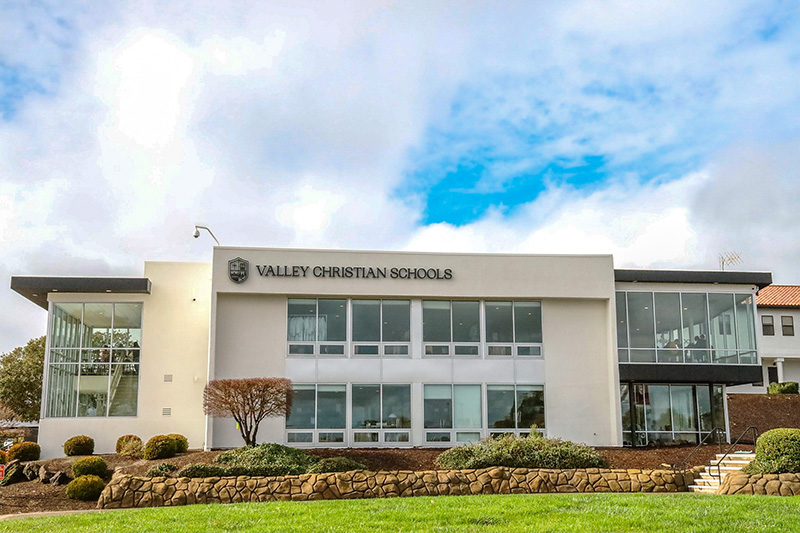
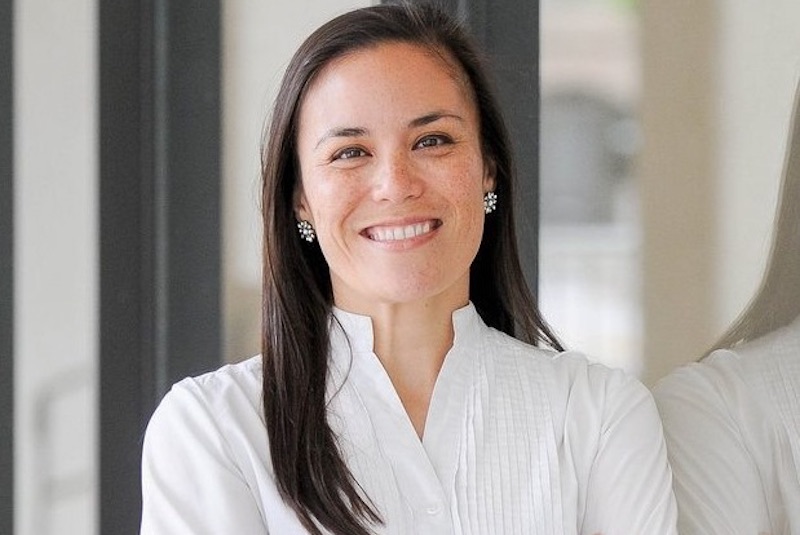
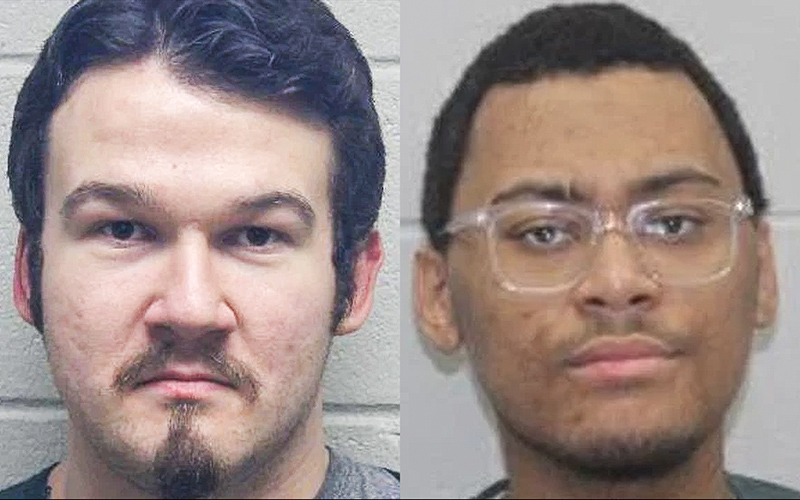
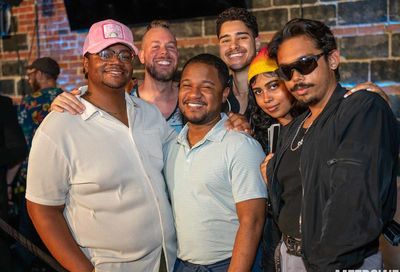
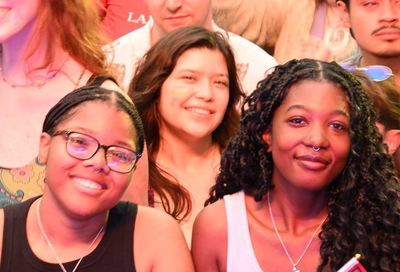

You must be logged in to post a comment.